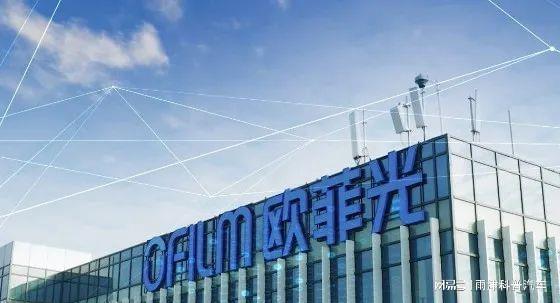Orders are full! Chinese suppliers' recovery from Apple's "cold shoulder"
In recent years, Huawei's position in the global market has been severely affected by US policies. The comprehensive suppression of Huawei by the United States has led to a sharp decline in smartphone sales, providing opportunities for other technology giants, especially Apple, to expand market share
In recent years, Huawei's position in the global market has been severely affected by US policies. The comprehensive suppression of Huawei by the United States has led to a sharp decline in smartphone sales, providing opportunities for other technology giants, especially Apple, to expand market share. Apple has demonstrated its strong influence in the global technology industry during this process.

Huawei's challenge is not only reflected in sales, but also in the deeper impact of its dependence on local Chinese suppliers. Many Chinese manufacturers have long relied on Huawei's orders to maintain operations, but as Huawei's market position wavers, these manufacturers are starting to look for new partners. Apple, with its huge market demand and global influence, has become the preferred partner for many suppliers. However, Apple's control over the supply chain also poses significant risks to these suppliers.

Apple's recent major move is to transfer some of its industrial chain to Southeast Asia. This transfer has led to the removal of 34 Chinese suppliers from Apple's supply chain, including optoelectronic giant Ophiko. In 2021, the performance of Oufeiguang decreased by 96%, leaving only 34 million. Afterwards, the company suffered losses for three consecutive years, with a cumulative loss of 3.2 billion as of the third quarter of 2022. A similar fate also happened to another Chinese company, Goethe Acoustics, which lost orders from AirPods and lost its market value by 9.9 billion.

China Central Television quickly responded to this by calling on major domestic manufacturers to reduce their dependence on Apple and seek more diversified operational strategies to avoid constraints from Apple. Although Apple's products are still highly favored by consumers, with a reported order volume of 80 million units for the iPhone 15, this number also reflects the degree of dependence on Apple products in the Chinese market in the absence of Huawei.
Against this backdrop, Huawei unexpectedly demonstrated strong recovery momentum. The Mate60 series has appeared in the international market like a "parachute" and is expected to sell 10 million to 15 million units by 2023, bringing in tens of billions of profits. What is even more concerning is that some suppliers that have been eliminated by Apple have begun to turn to Huawei and have established new cooperative relationships with Huawei. This change not only drives the adjustment of China's internal industrial chain, but also gives birth to a new supply chain system called "Huachain".

There are rumors that OFI Light has started collaborating with Huawei to produce lens modules for the Mate60 series. Its factory in Nanchang has added thousands of employees, indicating a large-scale recovery of the industry. And Goethe Acoustics has also started producing high-tech products called "Starshine" for Huawei. After losing Apple orders, many employees of Goethe resigned, their salaries decreased, and business at nearby shops was dismal. But when Huawei placed a new order, Goethe Acoustics ushered in a turnaround. The arrival of new orders not only brings long-awaited revenue growth to the company, but also injects new vitality into the local economy. The production lines inside the factory are once again busy, and the surrounding shops are gradually returning to their former prosperity. This change symbolizes that Huawei has not only revitalized itself, but also driven the recovery of the entire supply chain.

In the reshaping of this industrial chain, Huawei has demonstrated its profound technological strength and market influence. Huawei's recovery is not only a victory for the brand itself, but also a significant encouragement for China's manufacturing industry. Huawei has successfully reversed the unfavorable situation through innovation and strategic adjustment, contributing huge value to the global economy and creating a large number of job opportunities.
The rise of Huawei is also an important inspiration for other domestic technology companies. It proves that even under international political and economic pressure, Chinese enterprises can maintain competitiveness and achieve growth through technological innovation and market diversification. Huawei's case encourages more Chinese companies to enter the international market, improve their research and development capabilities and product quality, thereby reducing their dependence on a single market.

In today's global economic integration, Huawei's story also reminds the world that the success of any enterprise is not isolated, but rather the result of the joint action of an industrial chain, supply chain, and even the global economic system. Huawei's rapid adjustment and successful transformation have provided valuable experience and inspiration for the global technology industry.
Overall, Huawei's resilience and innovative ability in facing major challenges have not only earned it a return to the market and reputation, but also provided new development directions and opportunities for the entire technology industry in China and even globally. Huawei's return is not only a victory for itself, but also an inspiration and inspiration for the entire Chinese and even global technology industry. Therefore, supporting Huawei and domestically produced products is not only a manifestation of national sentiment, but also an important investment in future technological development and national competitiveness enhancement.
Tag: Orders are full Chinese suppliers recovery from Apple cold
Disclaimer: The content of this article is sourced from the internet. The copyright of the text, images, and other materials belongs to the original author. The platform reprints the materials for the purpose of conveying more information. The content of the article is for reference and learning only, and should not be used for commercial purposes. If it infringes on your legitimate rights and interests, please contact us promptly and we will handle it as soon as possible! We respect copyright and are committed to protecting it. Thank you for sharing.


